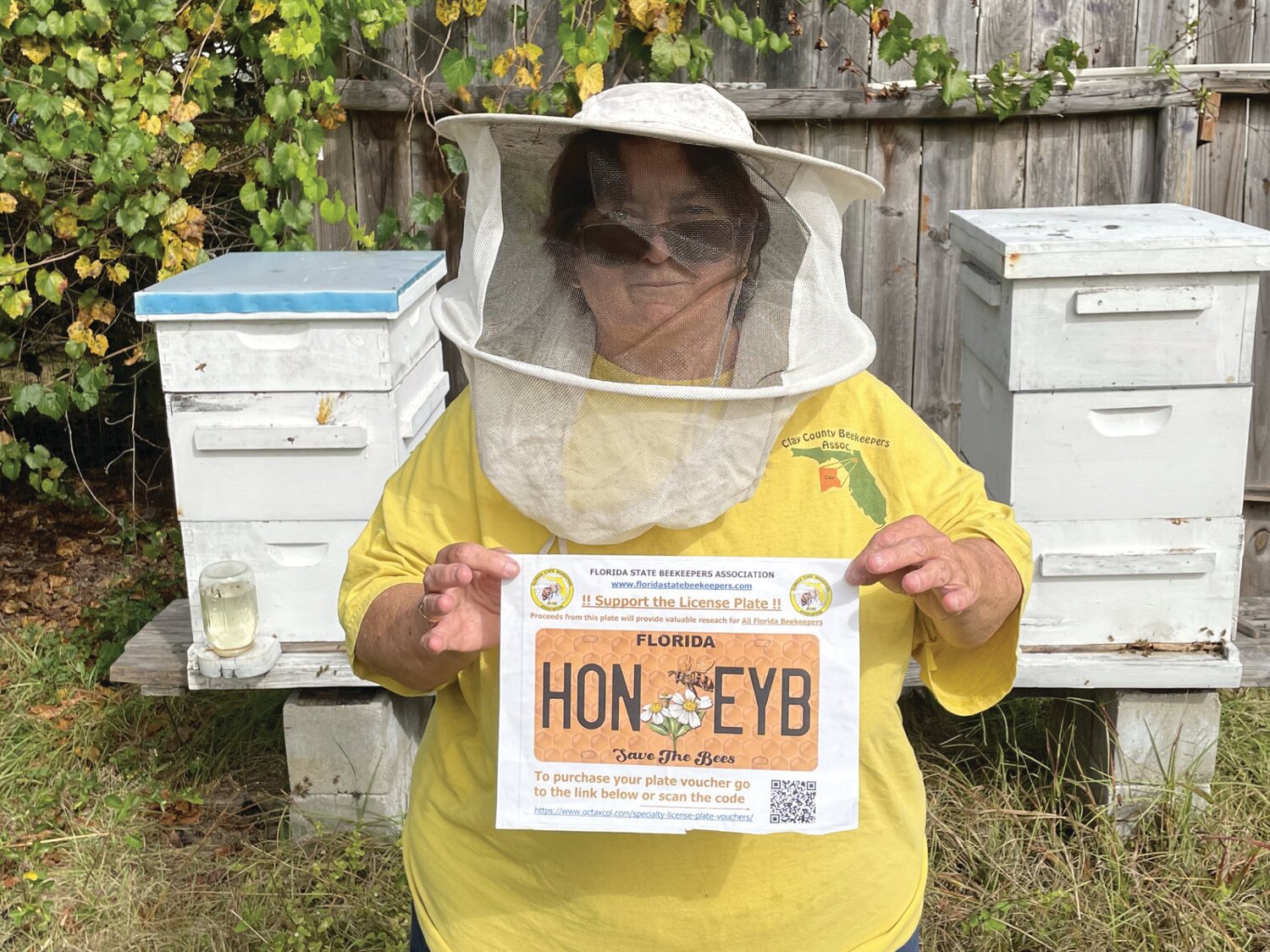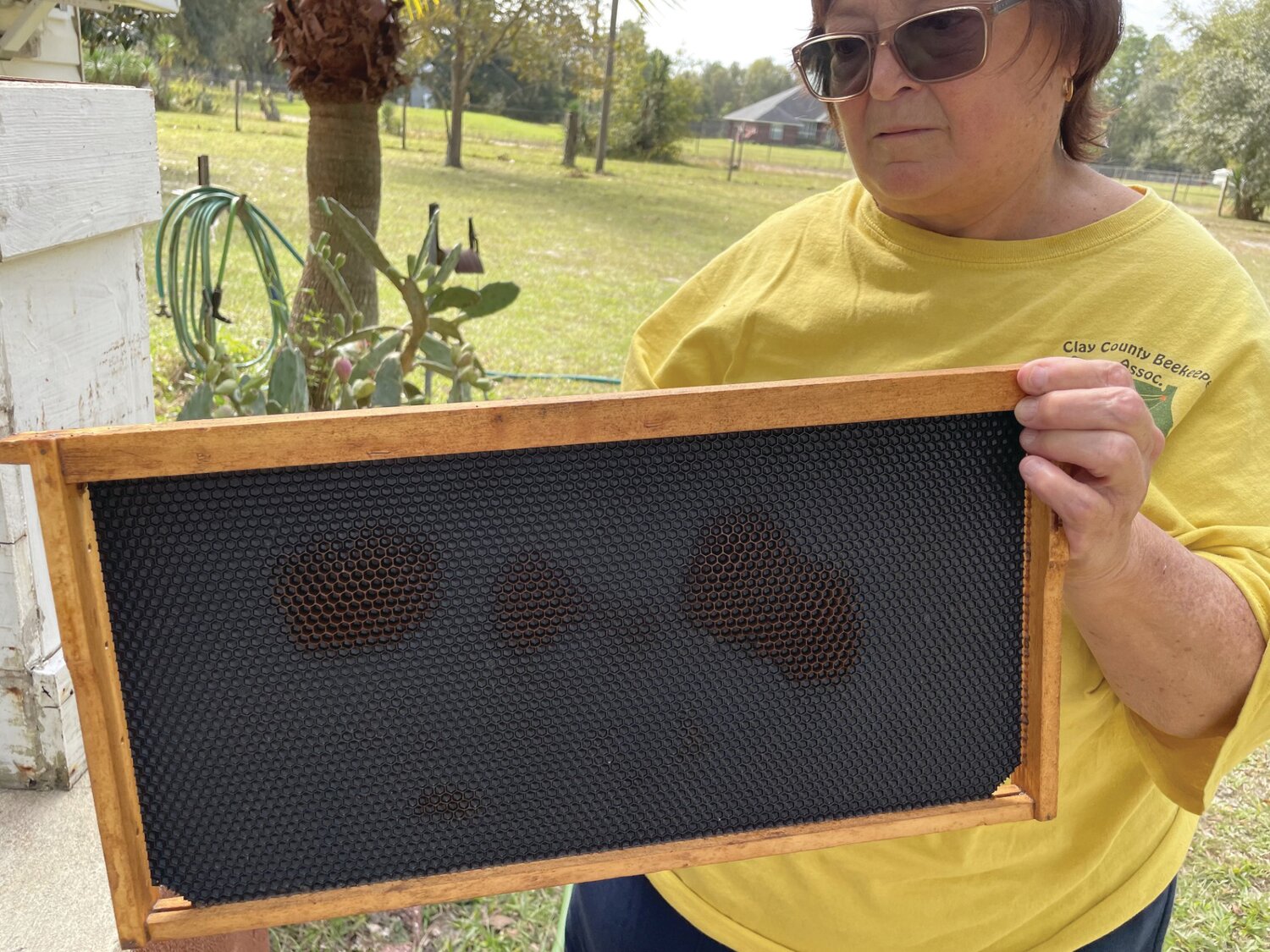Less than a year left to ‘Save the Bees’
Local beekeeper hopes to make a ‘buzz’
jack@claytodayonline.com
MIDDLEBURG – “Oh, I’ve been stung plenty!,” said Christine Nicolodi, a backyard beekeeper. “I’ve been stung too many times, even with my hood on. But as long as they’re not in my hair, …
This item is available in full to subscribers.
Attention subscribers
To continue reading, you will need to either log in to your subscriber account, below, or purchase a new subscription.
Please log in to continueDon't have an ID?Print subscribersIf you're a print subscriber, but do not yet have an online account, click here to create one. Non-subscribersClick here to see your options for subscribing. Single day passYou also have the option of purchasing 24 hours of access, for $1.00. Click here to purchase a single day pass. |
Less than a year left to ‘Save the Bees’
Local beekeeper hopes to make a ‘buzz’
MIDDLEBURG – “Oh, I’ve been stung plenty!” said Christine Nicolodi, a backyard beekeeper. “I’ve been stung too many times, even with my hood on. But as long as they’re not in my hair, I don’t mind.”
Nicolodi is a Clay County Beekeepers Association member, and she loves her Italian honeybees. They pollinate the flowers in her garden, fruit trees and any flowering plant within a three to five-mile radius. She loves their honey, too. This honey season, she harvested 70 pounds of tangy, golden, sweet wildflower honey from just two hives.
“Honey is like liquid gold,” she said. “It has antimicrobial (and anti-inflammatory) properties. It’s an all-natural antibiotic. Honestly, it’s the number one cure-all. It makes for a great gift.”
The honey season is between June and September. In the offseason, Nicolodi has been busy raising awareness for The Florida State Beekeepers Association’s “Save the Bees” license plate program. The association hopes to raise funds by selling specialty license plates to support the Honey Bee Research Laboratory at the University of Florida, an invaluable resource for residential and commercial beekeepers.
The UF Honey Bee Lab has extension programs across the state, where they reach out to beekeepers and offer solutions to keep hives healthy.
The FSBA successfully lobbied at the state level to list their design in the specialty license plate program. According to the Florida Department of Highway Safety and Motor Vehicles, all license plates must sell at least 3,000 pre-sale vouchers before the new specialty plate can be manufactured and made available. Based on the pre-sale data from their website, only 527 “Save the Bees” license plates have been sold.
The deadline is Oct. 15, 2024.
In response, Nicolodi and the Florida State Beekeepers Association have galvanized their efforts in a statewide grassroots movement. Even if the campaign is unsuccessful, Nicolodi is optimistic. The vouchers are just a means to an end.
“Bees are making a comeback,” she said. “Between 75 and 85 percent of pollinations are from honey bees. If you like flowers or fresh produce, you need bees. We cannot reproduce their contribution, and watching them do their thing is fun. You can see how the pollen sticks to their legs.”
“Honey bee populations have stabilized,” said Professor of Entomology Dr. Jamie Ellis, director of the UF Honey Bee Lab.
Since 2006, honey bees have been dying at an alarming – albeit stabilized – rate of about 30%, says Dr. Ellis in his “Field Guide to Beekeeping” article. He explains hives’ high annual death rates, most notably due to Varroa mites. These mites and the viruses they transmit wreak devastation across hives throughout the U.S.
As Dr. Ellis and other researchers continue developing efficacious treatments against Varroa and their viruses, the FSBA raises awareness for the pre-sale license plates. The fundraiser’s success depends on backyard beekeepers like Nicolodi and generous contributions from the community.
To purchase a pre-sale voucher, visit flstatebeekeepers.org/the-plate-voucher.
“The vouchers are non-refundable. But if the campaign is unsuccessful, the money won’t just disappear. Instead, it will just go toward your next tag renewal,” said FSBA member Kent Woodridge. “The UF Honey Bee Lab relies on grant funding but that could dry up at any time.”
Indeed, saving the bees will “bee” a community-led effort.










